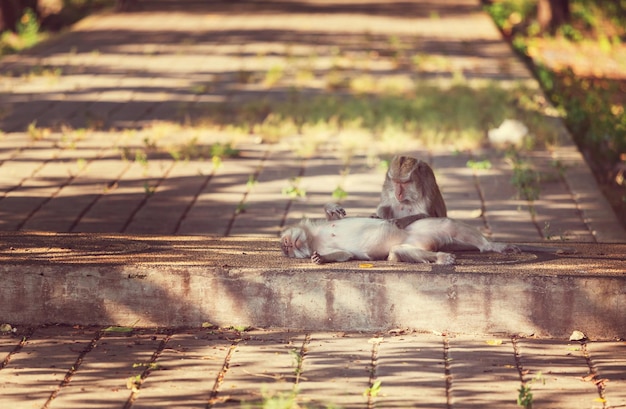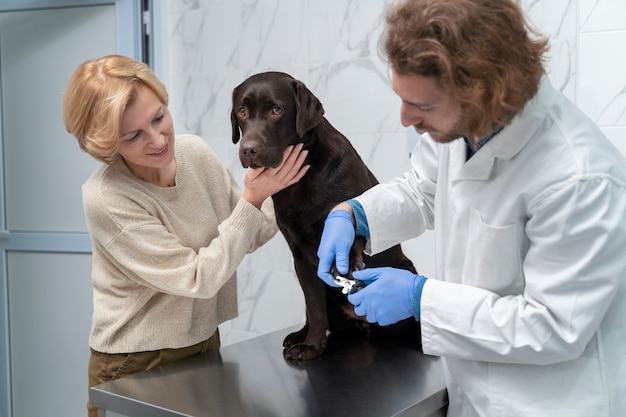Managing Pet Cancer Care in Coral Springs’ Rainy September


Managing Pet Cancer Care in Coral Springs’ Rainy September
Caring for a beloved pet with cancer is a journey that requires not only advanced medical expertise but also thoughtful attention to everyday challenges, especially when the weather turns hot and humid. At Veterinary Cancer Health, located at 4101 Turtle Creek Drive, Coral Springs, FL, our veterinary oncology team understands how South Florida’s rainy September weather can affect the well-being of dogs and cats undergoing cancer treatment. High temperatures, persistent humidity, and frequent thunderstorms can pose extra risks for immunocompromised pets or those on certain therapies.
In this guide, we will explore the unique considerations for pet cancer care in Coral Springs during the rainy season. You’ll discover how hot, humid weather can influence your pet’s comfort, immune defenses, and activity level. We’ll also share practical advice for keeping your pet safe, explain the warning signs that may require prompt attention, and outline how our oncology specialists tailor cancer care to meet your pet’s needs throughout Coral Springs and surrounding communities. Whether you’re seeking an oncology vet near me or want to learn more about ongoing cancer care and monitoring, our goal is to support you every step of the way.
Recognizing Weather-Related Challenges for Pets with Cancer
Signs Your Pet May Be Struggling in Hot, Humid Weather
Pets undergoing cancer treatment are often more sensitive to environmental stressors than healthy animals. Recognizing when the rainy, muggy conditions of September are affecting your pet is essential for providing timely support. Symptoms to watch for are excessive panting, increased lethargy, reluctance to move, or seeking out cool surfaces more frequently than usual. You may also notice decreased appetite, signs of dehydration such as dry gums or sunken eyes, and changes in breathing patterns.
For cats, subtle changes such as hiding more often, grooming less, or vocalizing differently can signal discomfort or overheating. Dogs might display restlessness at night, persistent coughing (if their cancer affects the lungs), or even show resistance to walks during humid afternoons. If your pet’s cancer treatment includes medications that suppress the immune system, you should also monitor for signs of infection, including fever, nasal discharge, or unusual swelling.
Understanding the Risks: Why Weather Matters for Pet Cancer Patients
The combination of high humidity, heat, and frequent rainstorms can put extra strain on pets fighting cancer. The weather in Coral Springs during September often means sustained temperatures above 85 degrees and humidity levels that rarely dip below 70 percent. For pets with cancer, these conditions may worsen fatigue, interfere with normal body temperature regulation, and increase the risk of heat stress. Additionally, the damp environment can promote bacterial and fungal growth, making infection a greater threat for pets with compromised immunity due to chemotherapy, targeted therapy, or immunotherapy.
Cancer itself, along with treatments like chemotherapy, can lower a pet’s ability to fight off common pathogens. As a result, even minor wounds or skin irritations can become serious if not managed promptly. The rainy season also means more time spent indoors, which may impact your pet’s mental health and activity levels. For those seeking pet cancer care Coral Springs, understanding these risks helps you work with your veterinary oncology team to develop a care plan that adapts to the season’s challenges.
Managing Pet Cancer Care in Coral Springs’ Unique Climate
Tailoring Cancer Treatment and Monitoring During Rainy September
At Veterinary Cancer Health, we approach every patient’s care as a collaboration between pet owners, our oncology veterinarians, and your primary care veterinarian. When the weather is hot and humid, adjustments to your pet’s cancer care plan may be necessary. Ongoing monitoring is especially important during this season; our team typically recommends more frequent recheck exams and bloodwork to ensure treatments remain safe and effective. If your pet is receiving chemotherapy or medical treatments, you may notice changes in their energy or tolerance for activity. We help you track these changes and adapt as needed.
Treatment approaches during hot, humid weather pet health concerns include careful hydration management, temperature control in the home, and sometimes adjusting medication dosing or scheduling. For example, we may recommend early morning or late evening appointments to avoid peak heat, or suggest specific supportive therapies to reduce nausea and maintain appetite. Our advanced diagnostics, such as digital radiographs and CT scans, help us monitor your pet’s response and catch complications early—even subtle changes that might be exacerbated by the climate.
In some cases, pets may benefit from additional second opinions or case reviews if symptoms seem to worsen or new issues arise during the rainy season. Our role as a specialist vet near me is to provide expert guidance and serve as a referral destination for complex cancer cases.
Supporting Immune Health and Preventing Secondary Infections
Managing infection risk is a cornerstone of pet cancer care Coral Springs, especially in wet, humid months. Our veterinary professionals may recommend routine bloodwork and urinalysis more frequently to catch early signs of infection. Steps to minimize risk at home include keeping your pet’s bedding clean and dry, promptly treating any skin irritations or minor wounds, and limiting exposure to muddy or standing water where harmful bacteria thrive.
If your pet is on immunosuppressive therapy, we will guide you in monitoring for subtle signs of infection and advise on when to seek prompt veterinary attention. Sometimes, we may suggest preventive measures such as topical antiseptics or immune-boosting nutritional supplements, always tailored to your pet’s individual needs.
Home Care Strategies for Pets with Cancer During Rainy, Humid Months
Making Your Home a Safe Haven
Effective pet cancer care Coral Springs during September’s rainy season starts with creating a comfortable, low-stress environment at home. Ensuring your air conditioning is functioning well and keeping humidity levels manageable helps your pet stay cool and reduces the risk of heat stress. Place your pet’s bedding in a well-ventilated area away from windows, where temperature fluctuations are less likely. For pets that love the outdoors, consider supervised, short walks during cooler times of day or create a shaded, covered area for fresh air without direct exposure to the sun or rain.
Encourage gentle activity to maintain muscle tone and prevent boredom, but always allow your pet to rest as needed. Offer water frequently, and if you notice your pet is drinking less, try adding ice cubes or low-sodium broth to their bowl. For cats, ensure litter boxes are kept clean and dry, as increased moisture can lead to infections or discourage use.
Infection Prevention and Grooming Tips
Maintaining regular grooming routines helps you spot skin changes or irritations early. Dry your pet thoroughly after any exposure to rain, and inspect paws for signs of redness, swelling, or cuts. If your dog enjoys puddle jumping, clean their paws afterward to reduce the risk of bacterial infections. For long-haired pets, trimming fur around the paws and belly may help keep moisture and mud at bay.
If your veterinary oncology team has prescribed topical treatments or medicated shampoos, follow instructions closely and reach out if you have questions. Consistent communication with your specialists helps you address small issues before they become major concerns.
When to Seek Professional Veterinary Oncology Care
Recognizing When Expert Help Is Needed
While many seasonal challenges can be managed at home, there are times when prompt veterinary attention is crucial. Warning signs that require immediate evaluation include persistent vomiting or diarrhea, sudden weakness or collapse, difficulty breathing, or evidence of infection such as fever, pus, or rapidly spreading redness. If your pet’s behavior changes dramatically—such as sudden aggression, confusion, or withdrawal—it may indicate pain or progression of disease.
If you notice swelling at a tumor site, unexplained bleeding, or signs of severe dehydration, do not delay in contacting your oncology veterinary team. Even if you are unsure whether symptoms are urgent, our specialists encourage you to reach out for guidance. As a leading oncology veterinarian near me, Veterinary Cancer Health is equipped with advanced diagnostics and treatment options tailored specifically for pets with cancer, ensuring your pet receives expert care when it matters most.
Our team collaborates closely with your primary care veterinarian to coordinate all aspects of your pet’s treatment, from cancer diagnosis and staging to ongoing monitoring and palliative care when needed. For families facing difficult decisions about comfort or end-of-life support, compassionate guidance is always available.
Conclusion: Compassionate Pet Cancer Care in Coral Springs’ Rainy Season
Navigating pet cancer care Coral Springs during the hot, humid months of September presents unique challenges, but with the right support and expertise, your pet can remain comfortable, safe, and as healthy as possible. Recognizing weather-related symptoms, taking preventive steps at home, and staying in close contact with an oncology vet near me helps you address concerns quickly and confidently. Veterinary Cancer Health is dedicated to providing specialty cancer treatment that adapts to the climate and your pet’s individual needs.
If you have questions about managing hot, humid weather pet health concerns, suspect your pet may be struggling with weather-related issues, or are seeking an expert oncology veterinarian near me, our team is here to help. Schedule a consultation or learn more about ongoing cancer care and monitoring today. For trusted pet cancer care in Coral Springs and surrounding communities, contact us at (119) 545-9285 or visit our 4101 Turtle Creek Drive, Coral Springs, FL location.
Please remember that this blog is intended for informational purposes only and does not replace professional veterinary advice. If your pet is experiencing any concerning symptoms or you need urgent guidance, always contact your veterinary oncology team promptly. For additional resources, consider visiting reputable sites such as the American College of Veterinary Internal Medicine (ACVIM) or Cornell University College of Veterinary Medicine. Your pet’s comfort and well-being remain our highest priorities throughout every season.

.png)















